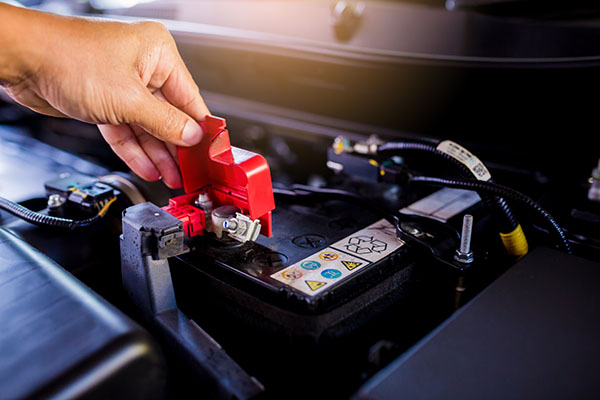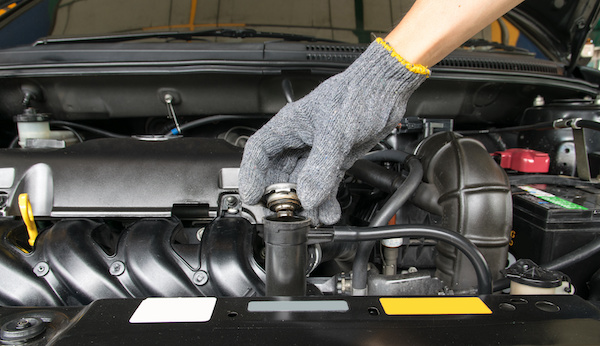Posted on 12/22/2023
.jpeg)
Your car is more than just a means of getting from point A to point B; it's a sophisticated machine of many intricate parts working together harmoniously to provide a smooth and enjoyable driving experience. However, like any other machine, it sometimes communicates subtly when things aren't going as expected - but don't worry because it gives off a few signs. 1. Exhaust Smoke Color Matters As you turn the key and your engine comes to life, pay close attention to the exhaust smoke. If it resembles the hues of a troubled sunset – blue, white, or black – your engine might be trying to convey distress. Blue smoke often signals burning oil, a white puff might indicate a coolant leak, and black smoke is a sign of an overly rich fuel-air mixture. These subtle signals can foretell impending issues, urging you to seek the expertise of a seasoned mechanic. &nb ... read more
Posted on 11/30/2023

In the realm of high-performance vehicles, there are gems that stand out not just for their speed but for the sheer driving pleasure they deliver. The 2016 BMW M2 is one such masterpiece, a testament to precision engineering and an embodiment of the iconic M Series legacy. Get your seat belts on, as we dive into the exhilarating world of the 2016 BMW M2, exploring its design, performance, and why enthusiasts consider it one of the best M models ever crafted. Design and Aesthetics The BMW M2, born from the DNA of motorsport, exudes a captivating aura from every angle. Its compact yet muscular frame hints at the power that lies beneath the hood. The aggressive front fascia, widened fenders, and signature M quad exhaust pipes all contribute to a visually striking presence. The M2 strikes a perfect balance between elegance and sportines ... read more
Posted on 10/30/2023

As winter settles around the state of Ohio, it brings with it a host of challenges, particularly for our trusty steeds, our beloved cars. While we bundle up in layers and brace ourselves for the biting cold, it's essential to recognize that our vehicles also require special care. We are talking about the battery. The plummeting temperatures can significantly impact your car's battery, potentially leading to sluggish starts or even complete failure. Understanding how low temperatures affect your car's battery and adopting proactive measures to mitigate these effects can ensure that your vehicle remains reliable and ready to conquer the frosty roads with ease and resilience. The Winter Chill and Your Car's Battery As the temperature drops, the chemical reactions within your car's battery slow down, reducing its ability to deliver the necessary power to start the engine. This decreased efficiency can lead to sluggish starts, increased strain o ... read more
Posted on 9/30/2023

Your car's engine is a powerhouse, generating heat as it propels you down the road. To ensure your engine doesn't turn into a boiling cauldron, it relies on a crucial ally – the radiator. The radiator plays a vital role in keeping your engine cool and your journey hassle-free. The Radiator's Vital Role At its core, the radiator is a heat exchanger. Its primary mission is to dissipate the excessive heat generated by your engine during combustion. Your engine's coolant circulates through the radiator, carrying away heat. As air passes through the radiator's fins, it cools down the hot coolant, allowing it to return to the engine and repeat the process. Recognizing Signs of Radiator Trouble Now that you understand the radiator's job, let's talk about when it needs some attention. Here are common signs of radiator issues: Overheating: If your engine consistently overheats, it's a telltale sign of radiator trouble. Leaking ... read more
Posted on 8/31/2023

Are you in the market for a Porsche that can fulfill your need for speed while still being practical enough for your family and road trips? You're in luck! Get ready to explore the thrilling universe of Porsche, where exhilarating drives and family-oriented features come together in perfect harmony. Porsche Cayenne - Speed and Comfort Combined The Porsche Cayenne redefines what an SUV can be. It's not just a family car; it's a powerhouse of performance and luxury that ensures every journey, whether a daily commute or a cross-country road trip, is an unforgettable experience. Step inside the Cayenne, and you'll be greeted with a spacious cabin adorned with high-quality materials. The seats are comfortable for long drives and supportive when you decide to explore the Cayenne's dynamic capabilities. The infotainment system is intuitive, keeping you connected and entertained while on the go. Family trips often involve luggage, sports gear, or shopping hauls. The Cay ... read more